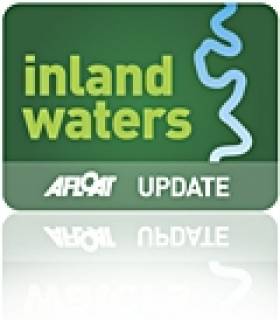Displaying items by tag: FINS Conference
IFI Addresses EU Parliament on Invasive Alien Species
#InvasiveSpecies - Dr Joe Caffrey of Inland Fisheries Ireland (IFI) presented Ireland’s position on the threat of invasive alien species to Ireland's waterways at a high-level debate at the European Parliament in Brussels on 21 February last.
Discussions centred on the issue of invasive alien species in Europe and the development of an EU policy instrument to tackle the threats.
The debate, titled ’Biodiversity’s Ticking Time Bomb: Understanding and Addressing the Problem of Invasive Species in Europe’, was organised via the International Union for Conservation of Nature (IUCN) and Birdlife, with the support of the European Habitats Forum.
Dr Caffrey was one of nine speakers who presented to the large gathering where he addressed the theme ‘The challenges and opportunities of member states in implementing EU legal measures: the example of Ireland’.
The talks were followed by a highly interactive panel discussion during which the pros and cons of a dedicated EU legislative instrument on invasive alien marine species were debated. The results of EU deliberations on this theme will emerge in the coming months when a consultation document will be released.
In the meantime, IFI and EIFAAC will host the FINS (Freshwater Invasives – Networking for Strategy) Conference in Galway on 9-11 April which will address key topics relating to freshwater invasive species and harmful aquatic pathogens.
The conference is attracting a large international audience of policy makers in this area. The primary objective of the conference is to provide a forum where international scientists, policy makers and stakeholders will address designated themes with a view to informing management and policy development in this increasingly important area.
Minister Fergus O'Dowd, who recently launched the world's first angling kit to combat invasive species, said of the conference: “Invasive species cause some €12.5 billion worth of damage each year in the European Union alone and are a serious threat to native biodiversity across the continent. IFI is keenly aware of the threat to our own natural resources, particularly to our economy, health and recreational activities.
“I want to congratulate IFI on the lead it has taken in its scientific, practical and proactive approach to this issue, working with stakeholders on the front line to ensure that biosecurity awareness is paramount. They are also bringing Ireland’s first-hand experience to Europe and adding to the positive debate on an EU wide cooperative framework to safeguard our natural resources through legislation and knowledge transfer."
The FINS conference will be held at the Galway Bay Hotel and Conference Centre in Salthill, Galway, Ireland from 9-11 April 2013. For more details visit the FINS Conference website.





























































